Father v son: The Yadav family drama gripping Indian politics
- Published
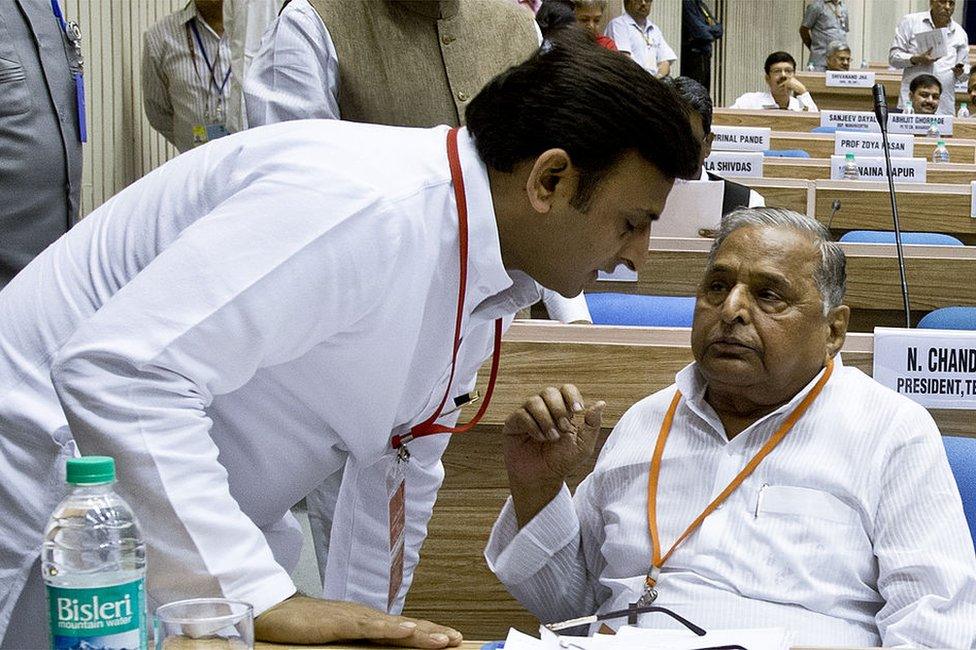
There have been growing differences between Akhilesh Yadav and his father, Mulayam Singh Yadav
A father expels his chief minister son from his political party, takes him back a day later, only to be replaced by the son as the party's president the following day.
The story seems like a good script for a Bollywood film, or as one observer put it, "something straight out of the hit US TV series House of Cards".
"Shake with your right hand, but hold a rock with your left," says Frank Underwood, the ruthless US president in the TV series.
Something similar has played out in real life in the last two weeks in India's most-populous state, Uttar Pradesh.
Indian politician sacked by own father
The chief of the state's ruling Samajwadi Party (SP), Mulayam Singh Yadav, on Friday expelled his son, Chief Minister Akhilesh Yadav, from the party for six years for "breaking his trust".
The 77-year-old looked in pain when he said that "the future of his son looked bleak", and he was "not listening or taking any advice" from him.
He had done the unthinkable, in his own words, he had "expelled his son after deciding to make him the chief minister" of Uttar Pradesh in 2012.
The news rocked the political landscape of the state, which is likely to go to polls in February.
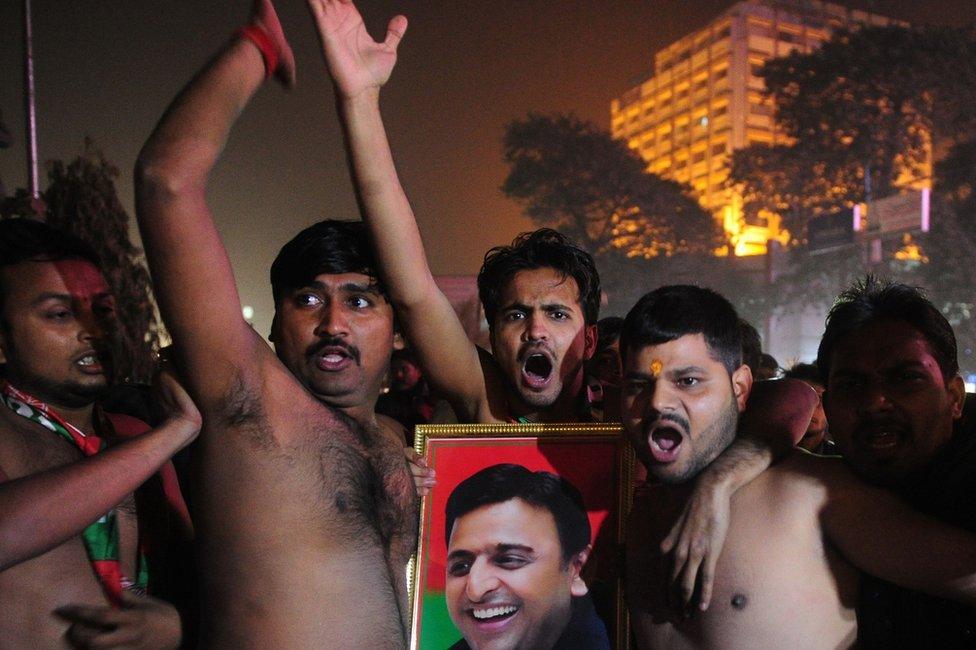
Akhilesh Yadav's supporters believe that he should take over the party
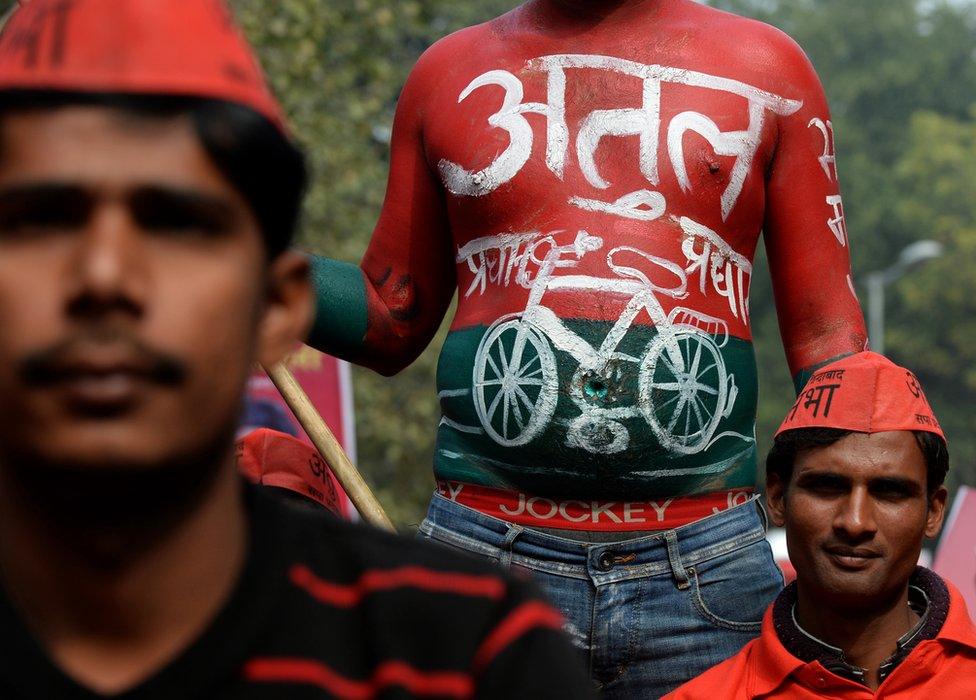
The father and the son are now fighting over the party's election symbol - a bicycle
TV news channels showed the supporters of the father and son violently clashing in the state's capital, Lucknow.
But in a sudden move, the senior Yadav took his son back into the party the following day, with a promise to fight the upcoming elections together.
He also cancelled the expulsion of his cousin Ram Gopal Yadav, whom he had blamed for giving the chief minister "wrong advice".
The storm seemed to have blown over. But just like in any good TV script, a twist was in store.
'Shrewd politician'
The chief minister on Sunday called a meeting of senior leaders and legislators at his house where he was unanimously elected the party's new president.
He gave his father a largely ceremonious role of "chief mentor".
Mulayam Singh Yadav has called the changes "unconstitutional". The party now looks set for a split with both groups approaching the Election Commission to claim the SP's poll symbol, the bicycle.
The elder Yadav is a veteran politician - he's served three terms as the chief minister of Uttar Pradesh and was the defence minister of India between 1996 and 1998.
He has played a key role in coalition governments, both in the state and at the federal level.
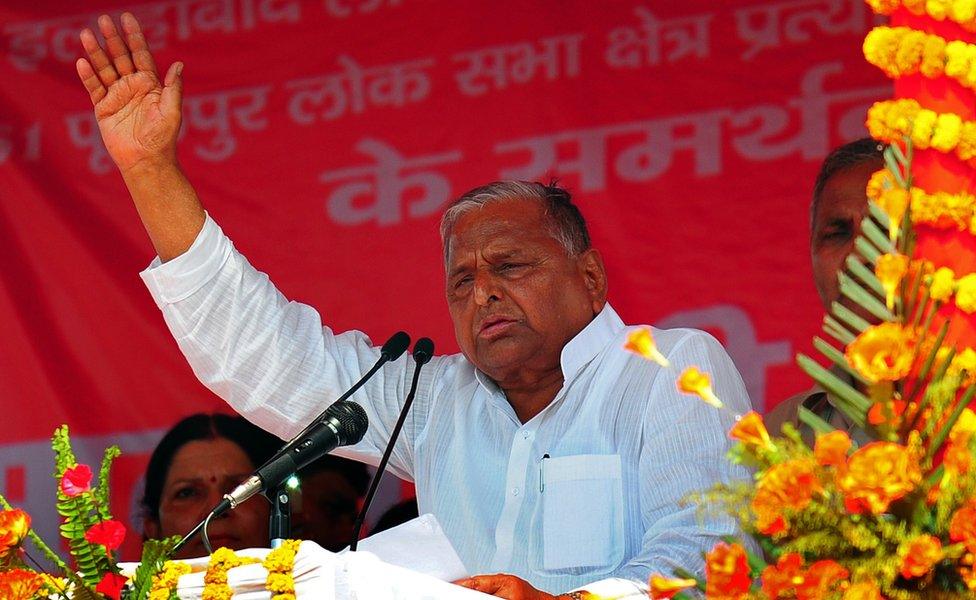
Mulayam Singh Yadav is a veteran politician
Considered a shrewd politician, he is known for surprising his colleagues and opponents alike with his decisions.
But as 2016 drew to a close, it was his turn to be surprised.
He said he went against his colleagues to appoint his son chief minister in 2012. Many at the time saw Mr Yadav's move as his way of securing his legacy in Indian politics.
He had also said that he wanted to concentrate on federal politics with an aim of becoming prime minister, an ambition he has never been shy to talk about.
So why did he decide to hurt his own legacy in 2016? The answer, most likely, lies in 2014.
'Noticeable decisions'
The SP suffered a humiliating defeat in elections that year, and Prime Minister Narendra Modi's Bharatiya Janata Party (BJP) won 71 of the 80 parliamentary seats up for grabs in the state.
Following the defeat, Mr Yadav publicly criticised his son.
The chief minister did not respond publicly, but decided to change his style of working, and took two noticeable decisions.
First, he became more assertive to quell speculation that he was a weak chief minister and that his relatives, including his powerful uncle Shivpal Yadav, were actually calling the shots behind the scenes.
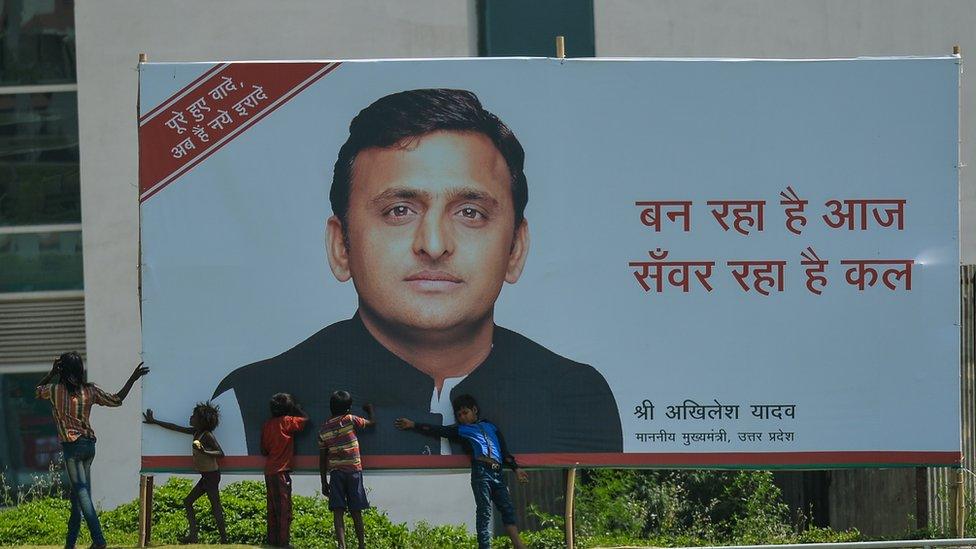
Akhilesh Yadav has projected himself as a man determined to achieve fast economic growth
His administration went on a publicity overdrive. Billboards, TV and radio adverts all portrayed him as the face of a state hungry for success and growth.
His second decision was to announce big projects like new motorways, power plants and job creation schemes.
The absence of his father's image from these promotional activities did not go unnoticed in the press, leading to speculation about a rift between the two.
However, the known reason for their current war of words is differences over the selection of candidates for the upcoming elections.
With a split in the party now imminent, the polls have become more interesting.
Will the BJP benefit from the SP's problems, or will former chief minister Mayawati's Bahujan Samaj Party take the lead?
In the fast-changing political landscape of Uttar Pradesh, it's become tougher than ever to answer such questions.